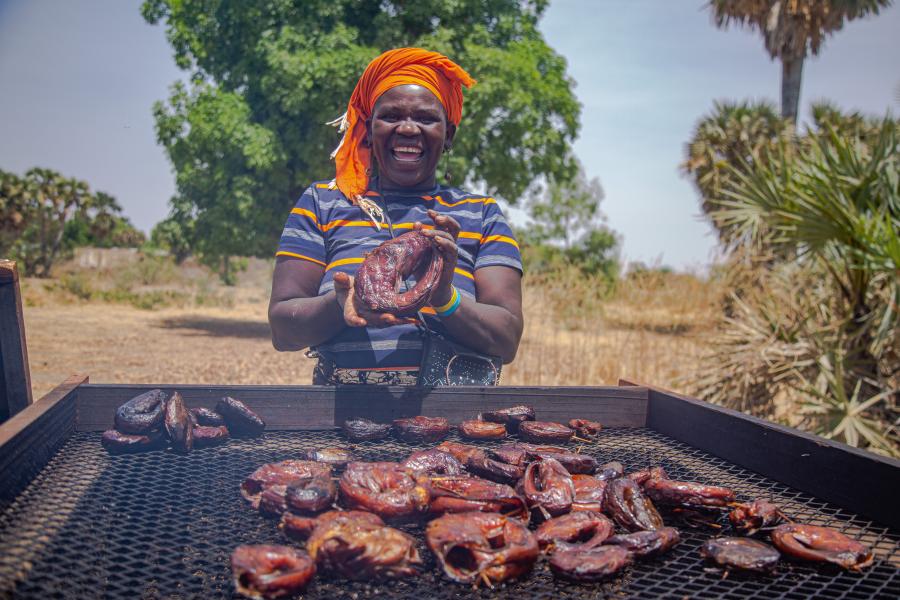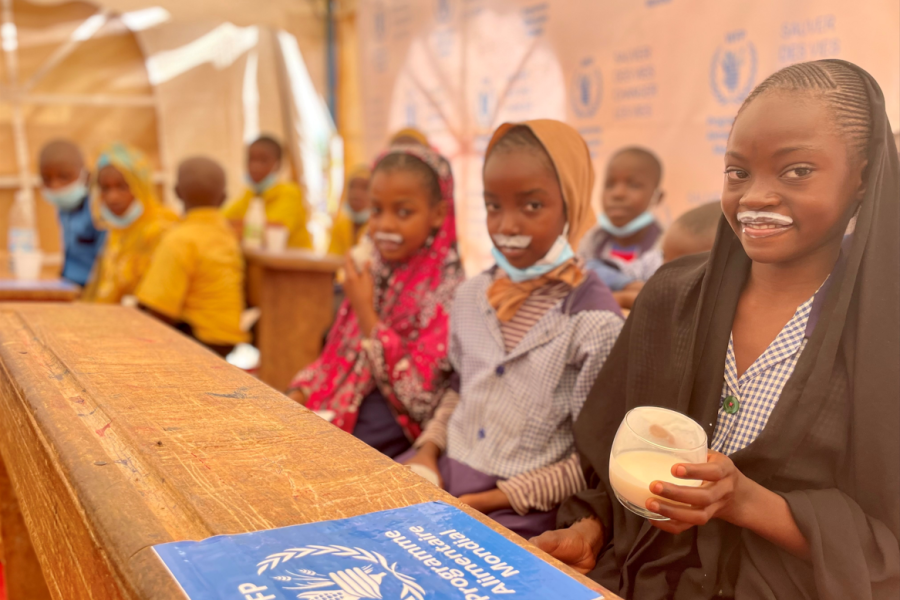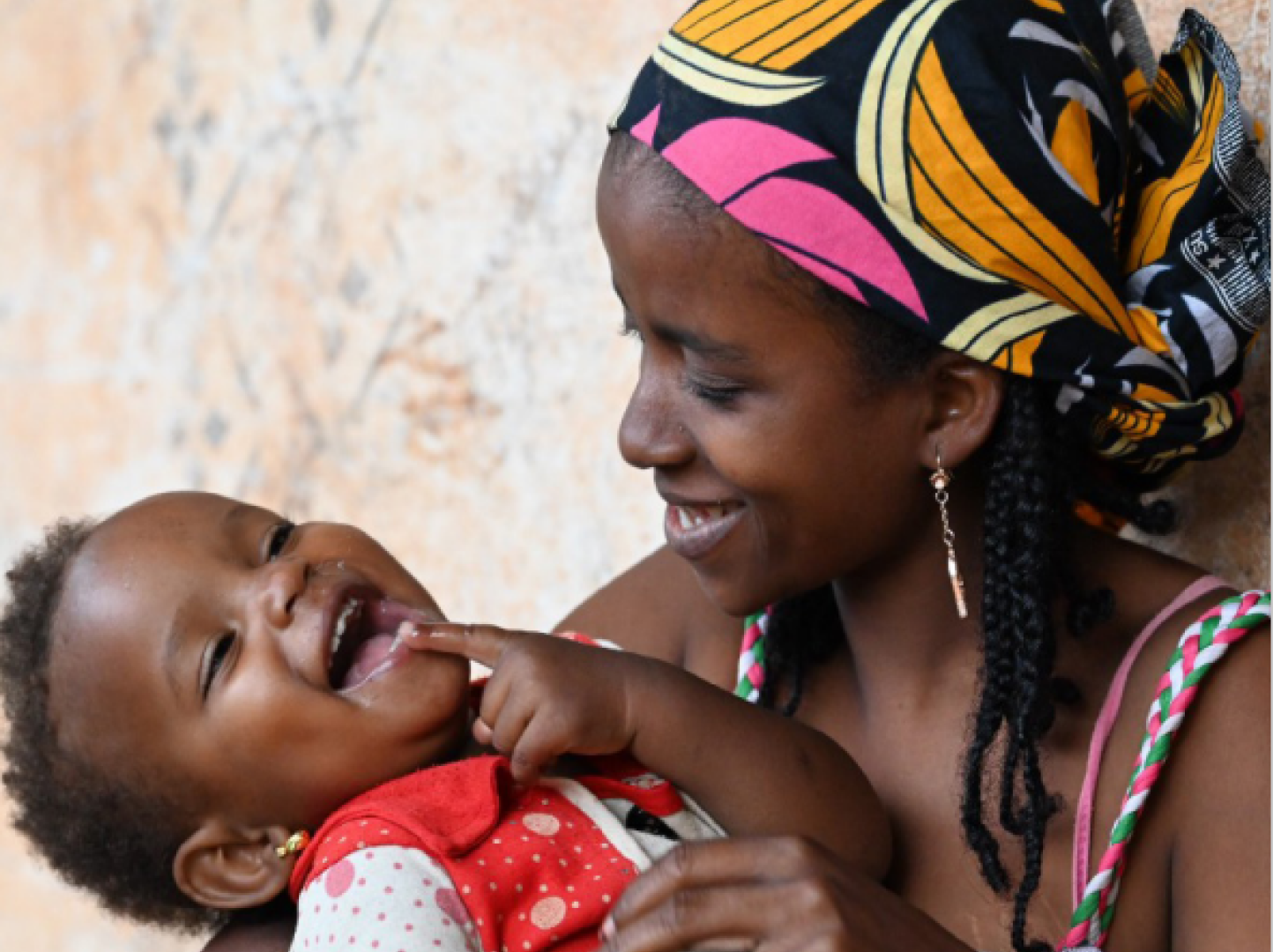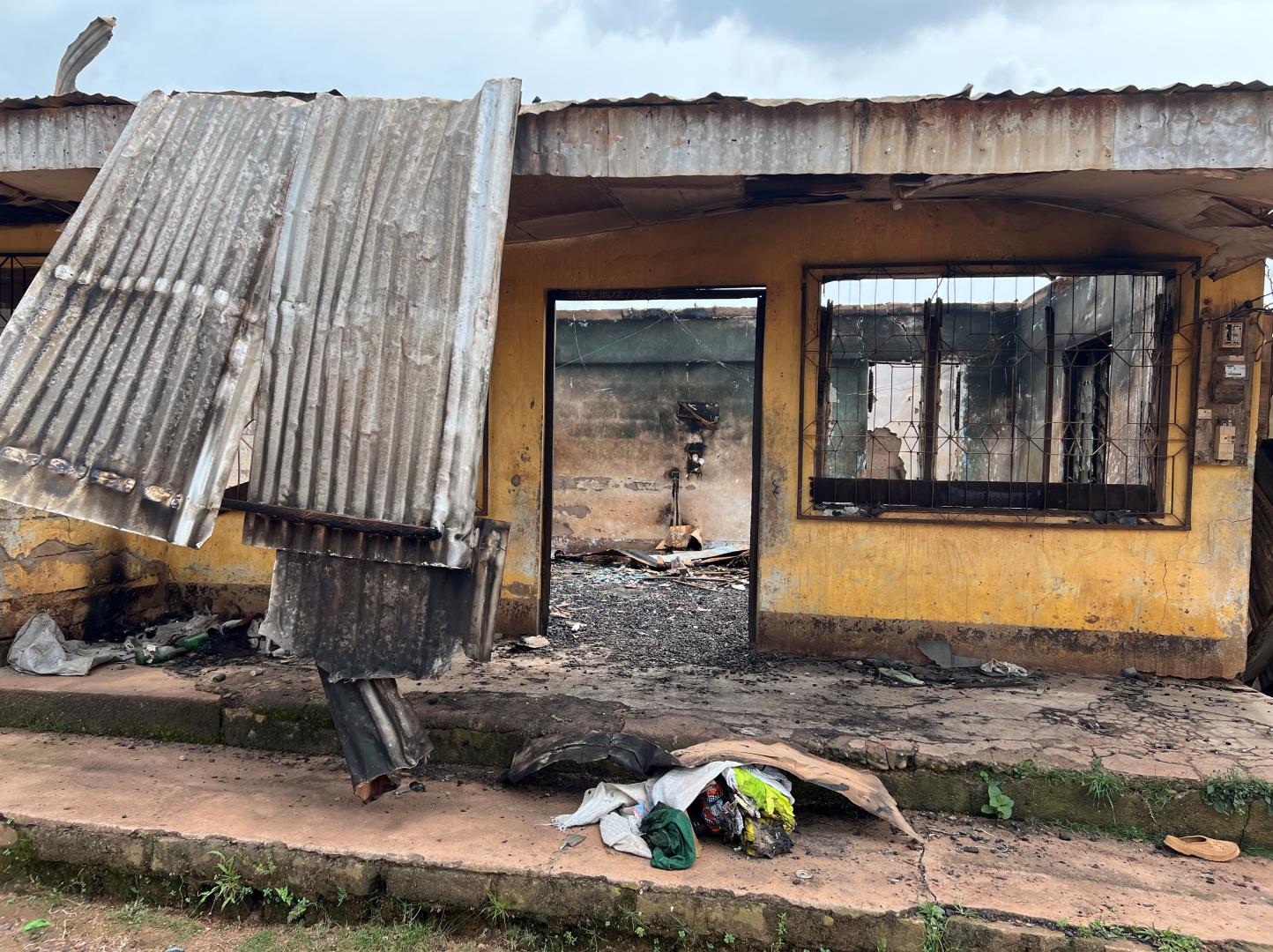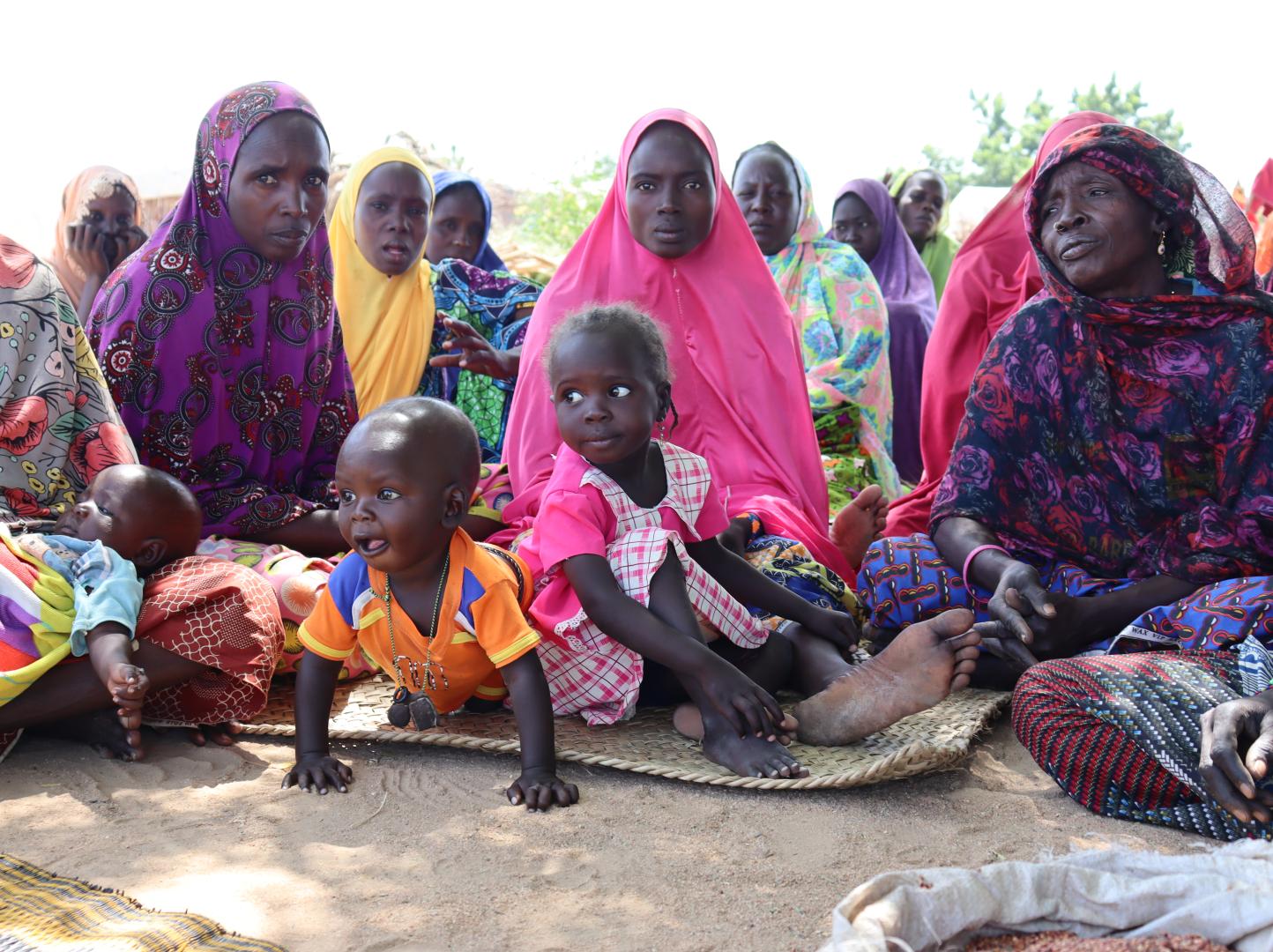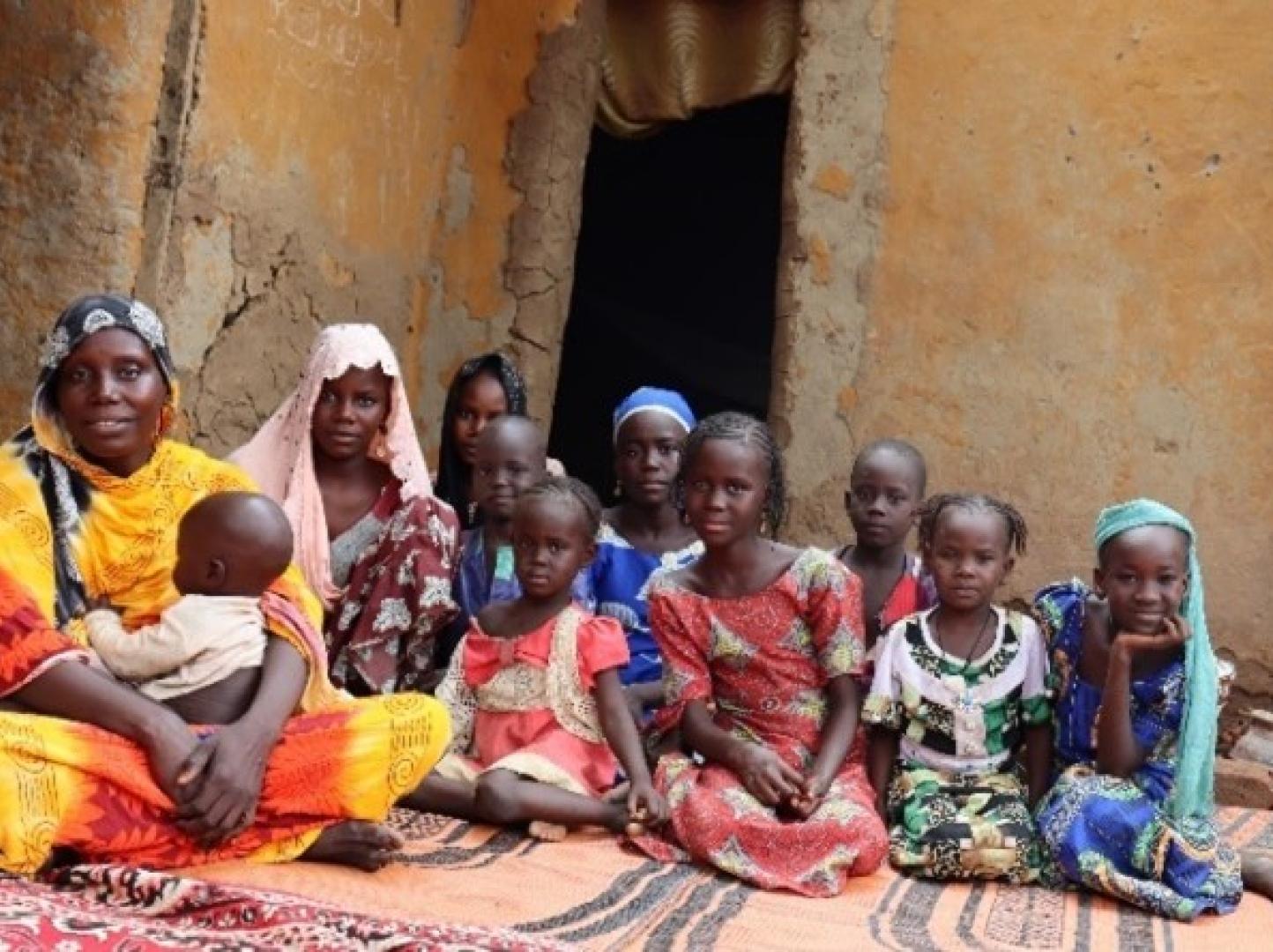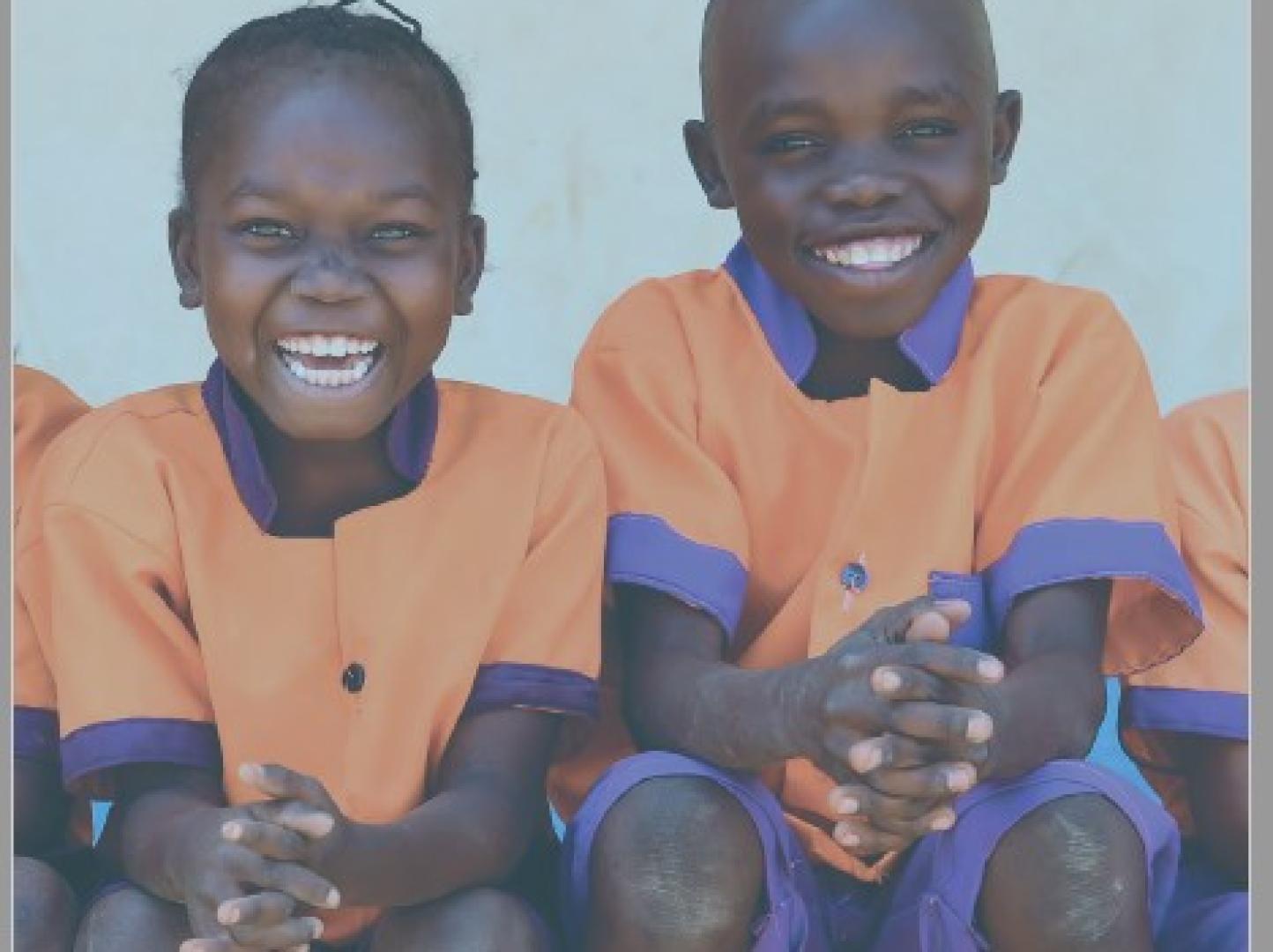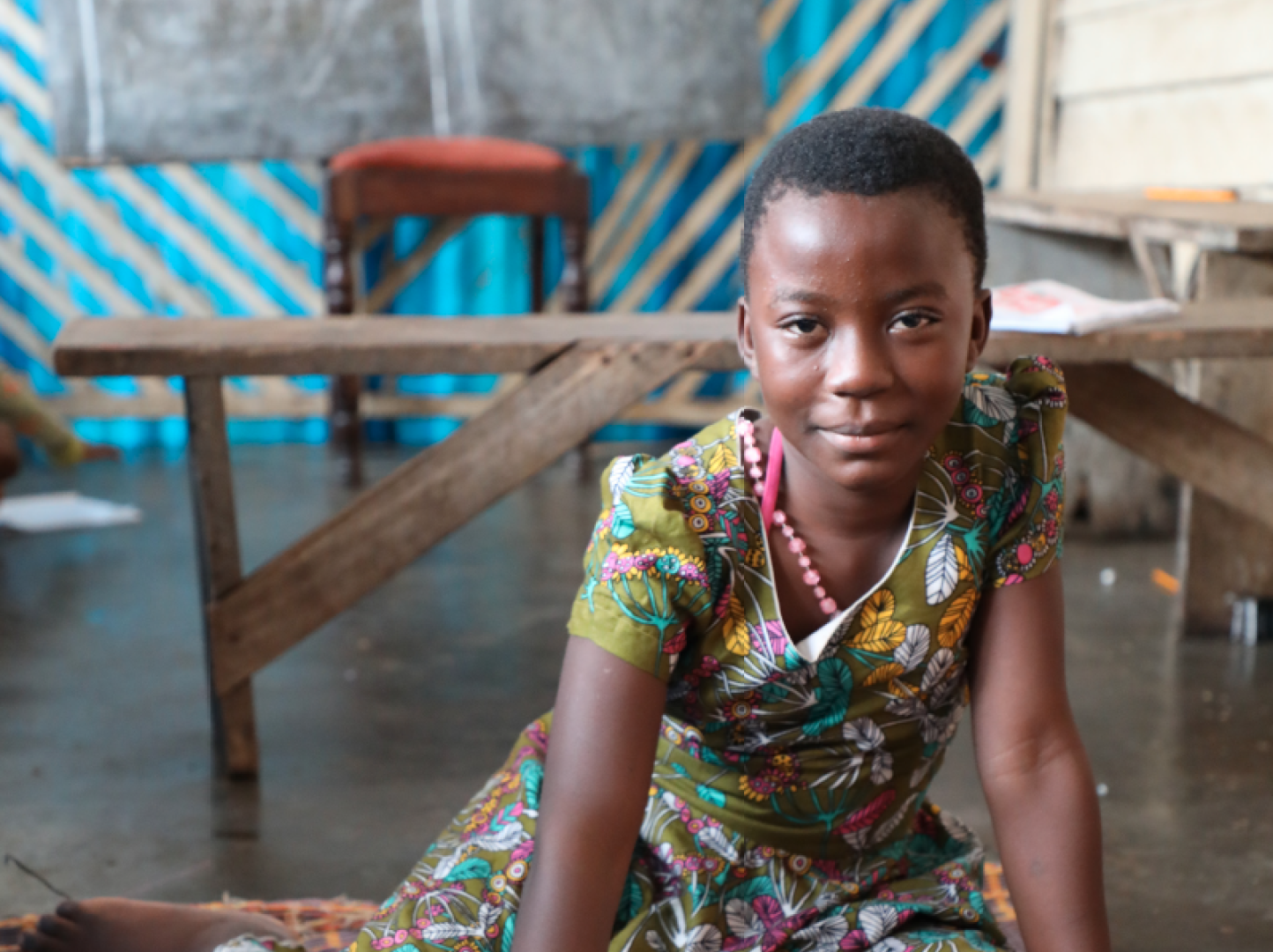Latest
Story
30 January 2024
Boots on the Ground – Ready to help in Emergencies
Learn more
Story
14 December 2023
In Cameroon’s conflict-hit regions, EU funding helps displaced families make ends meet.
Learn more
Story
14 December 2023
From dairy farms to milk cups; WFP ensures safety of school meals
Learn more
Latest
The Sustainable Development Goals in Cameroon
The Sustainable Development Goals are a global call to action to end poverty, protect the earth’s environment and climate, and ensure that people everywhere can enjoy peace and prosperity. These are the goals the UN is working on in Cameroon:
Story
11 December 2023
Agenda jeunesse-paix et sécurité en Afrique de l’Ouest et du Centre : UNFPA accompagne le processus de mise en oeuvre
Le Cameroun a abrité du 16 au 19 octobre 2023, l’atelier de formation des formateurs sur l’Agenda Jeunesse, la Paix et la Sécurité (JPS) en Afrique de l'Ouest et du Centre. A l’initiative du Fonds des Nations Unies pour la Population (UNFPA), cet atelier visait à transmettre à 33 formateurs venus de 12 pays de cette Région, des connaissances et compétences nécessaires pour faciliter l'élaboration, la mise en œuvre et le suivi des plans d’actions nationaux de l’Agenda JPS à former.
La Région Afrique de l’Ouest et du Centre est confrontée à une crise humanitaire sans précédent, exacerbée par des conflits prolongés, des déplacements massifs de population, l’instabilité sociopolitique, le changement climatique, la forte croissance démographique, l’inflation et les pénuries alimentaires, notamment au Sahel, dans le Liptako-Gourma, dans le bassin du Lac Tchad et dans le Golfe de Guinée. Pour cette Région, le maintien de la paix n’est pas une simple option, c'est un impératif pour lequel les 200 millions de jeunes (population de moins de 24 ans), qu’elle compte, soit 64% de la population, doivent contribuer, en apportant leur créativité et plein potentiel.
La participation et l’influence significatives des jeunes dans les processus de consolidation de la paix doivent être sauvegardées en tant que droit ou atout susceptible d’améliorer la pertinence, l’efficacité et l’impact des initiatives, politiques et décisions en matière de paix et de sécurité. A l’instar du Nigeria, du Tchad, de la République Centrafricaine, du Togo, du Bénin, de la Sierra Leone, du Mali, de la Côte d’ivoire, du Ghana, Gambie, Sénégal, les autorités camerounaises, à travers le Professeur Kum Awa Paschal, représentant personnel du ministre de l’éducation civique à la cérémonie inaugurale, se sont engagées à mettre en œuvre l’Agenda JPS en s’appuyant sur le programme REAMOCE déjà en place.
En se référant sur les résolutions 2250 (de 2015), 2419 (de 2018) et 2535 (de 2020) du Conseil de Sécurité des Nations Unies qui constituent l’ossature de l’Agenda JPS, les participants ont traduient dans les faits, les cadres politiques généraux en documents contextualisés afin de leur permettre d’être des agents de changement et des bâtisseurs de la paix en Afrique de l’Ouest et du centre.
1 of 3
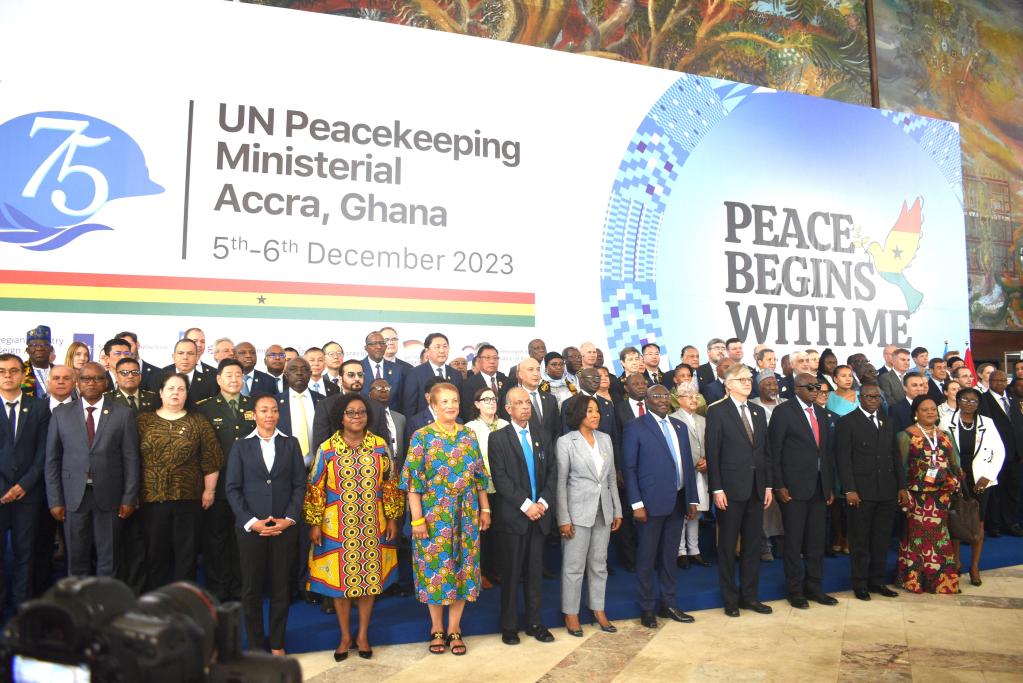
Story
11 December 2023
Vers une pêche à la crevette plus forte et plus saine au Cameroun
Les efforts entrepris au Cameroun pour maintenir les captures de crevettes à leurs niveaux actuels tout en renforçant cette pêcherie dans le pays étaient à l'honneur de la présentation conduite aujourd'hui à l’occasion du rapport de FISH4ACP. Ce programme mondial de développement des chaînes de valeur du poisson contribue à consolider le secteur de la crevette et à réduire son impact sur l'environnement.
« La crevette est à la tête des exportations camerounaises de produits de la mer. C’est une source de revenus économiques et elle contribue à la subsistance de nombreuses personnes », a déclaré [M. Taiga, ministre de l'élevage, de la pêche et des industries animales] aujourd'hui, en acceptant le rapport de FISH4ACP intitulé « Chaîne de valeur des crevettes de grande taille au Cameroun ». [M. Taiga] a ajouté : « Toutefois, nous devons assurer la stabilité des stocks de crevettes afin de sauvegarder cette ressource essentielle pour les générations futures. »
Selon le rapport, la production annuelle de crevettes au Cameroun est estimée à 4 200 tonnes pour la pêche industrielle et à plus de 1 000 tonnes pour la pêche artisanale. D'une valeur de plus de 30 millions d'USD par an, la crevette est une activité rentable pour l'ensemble des acteurs impliqués – pêcheurs industriels et artisanaux, transformateurs, grossistes et détaillants. De plus, le secteur emploie quelque 1 800 personnes, majoritairement des jeunes.
Les résultats présentés sont le fruit d'une analyse de la chaîne de valeur menée par FISH4ACP, une initiative de l'Organisation des États d'Afrique, des Caraïbes et du Pacifique (OEACP) mise en œuvre par la FAO et financée par l'Union européenne (UE) et le Ministère fédéral allemand de la coopération économique et du développement (BMZ), qui contribue à renforcer le secteur de la crevette au Cameroun et à en accroître la durabilité.
L'analyse a permis d’élaborer une stratégie décennale fondée sur un consensus sectoriel et lancée l'année dernière pour accroître la productivité et la compétitivité de la chaîne de valeur de la crevette et réduire son impact sur l'environnement en maintenant les captures aux niveaux actuels.
Pour ce faire, il est prévu d'améliorer la collecte de données et la traçabilité tout au long de la chaîne de valeur et de stimuler les ventes de crevettes en renforçant le contrôle, la qualité et l'accès à des marchés à plus forte valeur ajoutée.
« Il est réjouissant de voir les efforts déployés par FISH4ACP pour renforcer le secteur de la crevette au Cameroun tout en stabilisant les stocks et en protégeant l'environnement », a déclaré Valentin Katzer, responsable de la coopération à l'ambassade d'Allemagne.
Philippe Mayaux, ministre conseiller à la délégation de l'Union européenne, a abondé dans le même sens : « Cela montre qu'il est possible de promouvoir une pêche responsable tout en stimulant la croissance économique et en créant des emplois ».
« FISH4ACP a commencé à valoriser le potentiel de la pêche à la crevette au Cameroun », a déclaré Athman Mravili, Représentant de la FAO au Cameroun. « La FAO est heureuse de contribuer à cette transformation bleue pour parvenir à une meilleure production, une meilleure nutrition, un meilleur environnement et une vie meilleure ».
Athman Mravili a salué la création de la plateforme « PLACRECAM », qui rassemble des acteurs clés de la chaîne de valeur de la crevette et veille à l'exécution de la stratégie. À terme, cette plateforme veillera à ce que les efforts de FISH4ACP perdurent au-delà du terme de l'initiative en 2025.
Au début de l'année, des membres de la plateforme ont échangé avec leurs homologues du Sénégal et de Madagascar et se sont familiarisés avec les enjeux clés pour optimiser la gestion des ressources, améliorer le contrôle et le suivi et renforcer l'accès aux marchés rentables pour les crevettes géantes du Cameroun.
Une étude de référence est actuellement en cours pour élaborer un premier plan de gestion de la pêche artisanale et pour mettre à jour celui de la pêche industrielle. Parallèlement, la mise au point d’un outil numérique pour la collecte de données sur les captures de crevettes est sur le point d'être lancée, ainsi qu'une norme de qualité́ pour les produits de la pêche à la crevette.
Ces activités contribueront à renforcer l'environnement commercial et sanitaire, faisant évoluer le Cameroun vers une pêche à la crevette plus forte et plus saine qui profite à l'économie locale et favorise l'emploi, notamment pour les femmes et les jeunes.
1 of 3
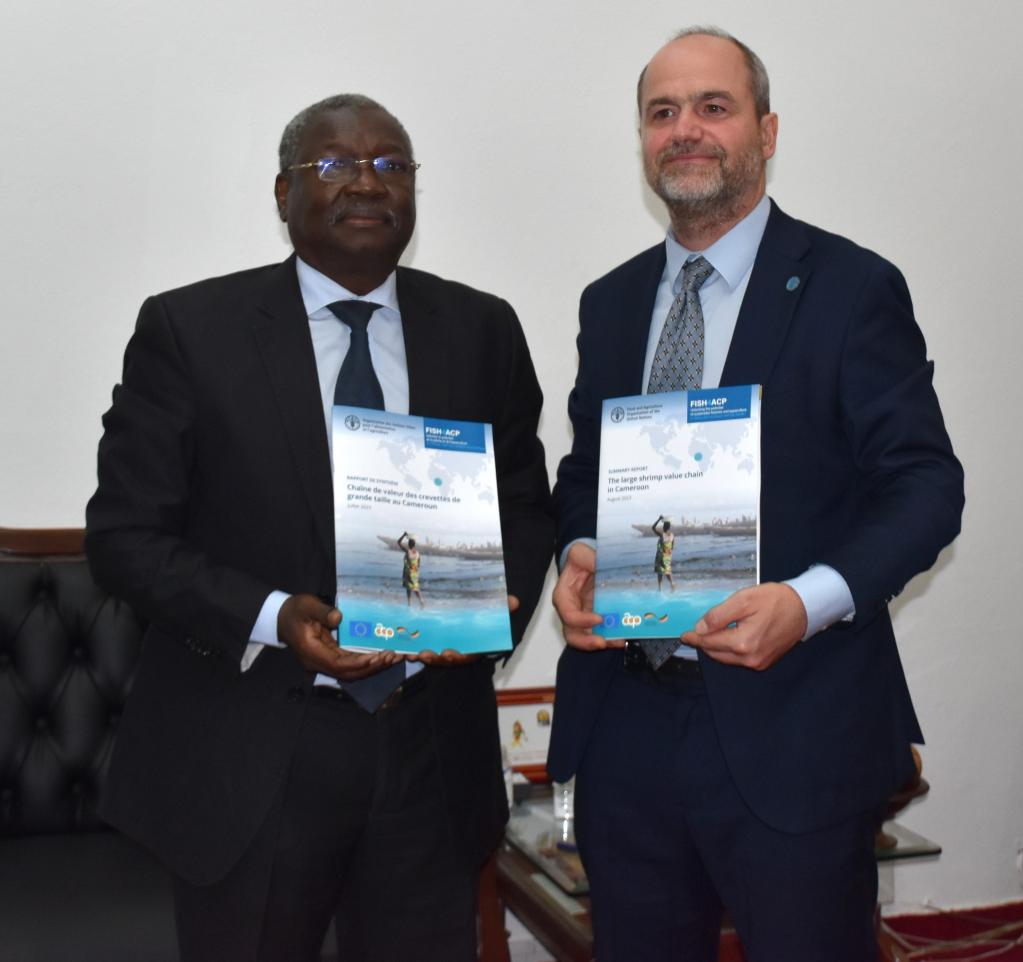
Press Release
26 September 2023
Le Secrétaire général s'est entretenu aujourd'hui avec S.E.M. Lejeune Mbella Mbella, Ministre des Relations Extérieures de la République du Cameroun.
Ils ont discuté de la situation au Cameroun, y compris dans les régions du Nord-Ouest, du Sud-Ouest et de l’Extrême-Nord. Ils ont également discuté des conséquences globales de la guerre en Ukraine ainsi que de la nécessité de réformer l’architecture financière internationale. Le Secrétaire général a réitéré l'engagement des Nations Unies à soutenir le Cameroun.
New York, le 25 septembre 2023
1 of 3
Story
30 January 2024
Boots on the Ground – Ready to help in Emergencies
The town of Buea lies on the foot slopes of the gigantic Mount Cameroon. It stretches towards the Atlantic ocean where it meets with the beautiful seaside town of Limbe. Buea is known for its “legendary hospitality.” It is also the town where flashfloods and a mudslide killed two people, injured dozens and displaced hundreds last year.
Displacements are now a major cause and or trigger for hunger. Not just in the South West chief towns but also in the Far North region where predatory insurgency attacks and climate change have forced over 400,000 people to flee their homes. They flee in search of a better life as they have lost all other sources of livelihood. Basic needs like food, water and shelter become luxuries and without help, some of these people are almost certain of a devastating future.
“I fled my home with nothing but the clothes on my skin and the child on my back” recounts Sauratu, a woman recently displaced by conflicts along the Cameroon, Nigeria Border where Government is pushing back a Boko Haram incursion that has metamorphosed into Predatory attacks. She is among 3,000 women, men and children who have settled in Ngouma, Far North region. They receive a monthly ration from the World Food Programme (WFP) to cover for their food needs within the first three months of arrival.
“Those early days are usually the hardest. Without WFP’s support, I wonder how we would have survived,” says Hamisou, the spokesperson for displaced people in this make shift displacement camp. “Today, I received rice, split peas, vegetable oil and salt. It may not take me through the month, but I’m hopeful,” says Sauratu.
It is hard to find hope where emergencies or natural disasters occur. The flash floods in Buea came unannounced and swiftly too, but left a community in shock and despair and needing assistance. “I climbed to the roof of house and watched my Kitchen being swept away by the floods” a lady in Buea Town lamented. She lost her entire kitchen and all the food she had stocked. Within hours she was vulnerable and food insecure.
Thanks to its Emergency Response preparedness and innovative approach to delivering humanitarian assistance, WFP has been able to preposition support for many of the flashfloods and mudslide victims. Truckloads of food commodities have been transported to Buea and neigbouring towns to provide appropriate assistance. WFP is already supporting over 350,000 people displaced by conflict in the North West and South West regions with cash and in-kind food assistance.
The World Food Programme in Cameroon has been responding to emergencies and meeting the food and nutrition needs of almost a million people living in Cameroon. Whenever an emergency arises, WFP prepositions for a response. The response is often what makes a difference, saving lives that could otherwise be lost.
WFP’s emergency response operations in the North West and South West regions, as well as the Far North region is possible thanks to the generous donations of Canada, the European Union, France, Germany, Ireland, Japan, Norway, Sweden, Switzerland, UNCERF, the United kingdom and the United States of America.
1 of 5
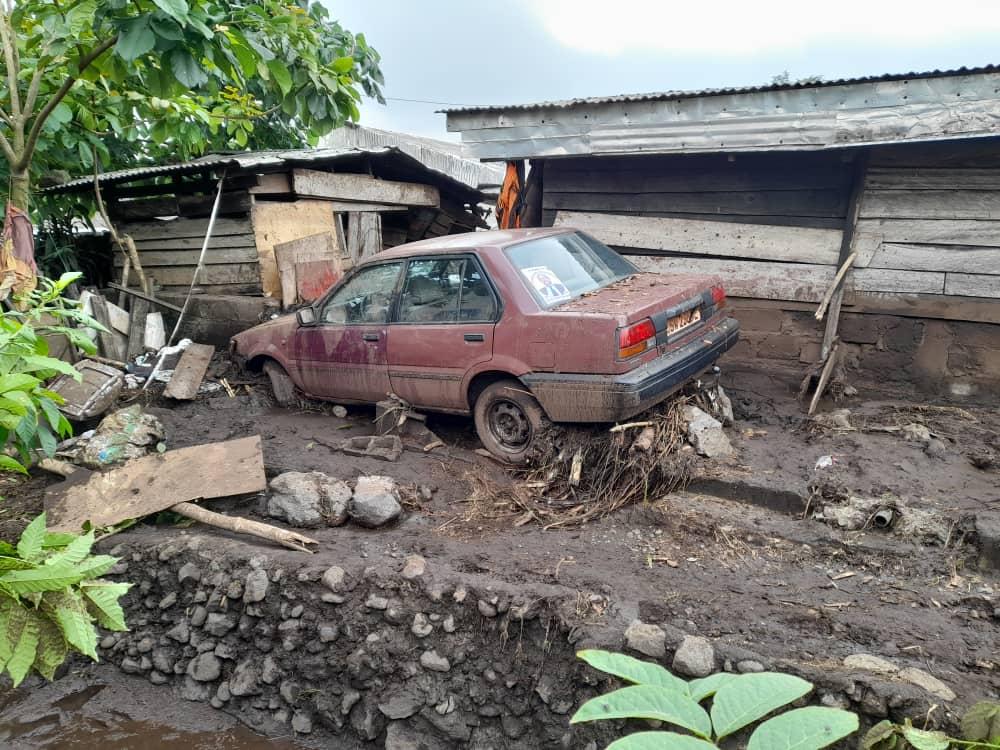
Story
14 December 2023
From dairy farms to milk cups; WFP ensures safety of school meals
Milk has a limited shelf life. It must be handled and preserved in the highest laboratory standards to prevent contamination or spoilage. Milk is a highly nutritious food containing essential macronutrients and micronutrients that can boost children’s growth n and cognitive abilities.
Since February 2022, The World Food Programme in Cameroon has been supporting almost 1000 school children in the Adamawa region with locally processed milk (yogurt), cassava bread and eggs sourced from local producers in the region.
One of the newest additions to the Home Grown School Feeding Programme in the region is the Beka Matali School. WFP started providing yoghurts, bread and eggs here in December 2022. Already, school attendance and performance has significantly improved. The head teacher, Tchinda Bertille says, “The entire community, especially parents of schoolchildren appreciate the yogurt.” According to her, the taste is excellent, the quality is sure and “we have never received any negative complains about the product.”
The Adamawa region is known for its many cattle. It has one of the highest illiteracy rates in the country at almost 34%. School aged children would often tend to cattle in the fields and eventually join the family business. One of WFP’s main objectives when it launched the pilot of the Home Grown School Feeding Programme in 2022, providing bread and yogurt in schools, was to help improve enrolment and attendance in schools. According to the teacher of the Ngodi Malfagoua School, Issa Timothe, that objective is already being met. “Usually during Transhumance, classes would be empty because pupils are out tending cattle, but since WFP started providing school meals, we have a full class every.”
ENSURING THE QUALITY AND SAFETY OF THE YOGURT
Much of the milk supplied to Walde Kossam (A local dairy processing plant, transforming milk to yoghurt) is sourced from herders' cooperatives f located just a few kilometers from the chief Adamawa town of Ngaoundere. Farmers and cattle herders here, in villages like Idool, Tello and Tchabal have grouped into cooperatives. With support from WFP and Government ministries like the Ministry of Livestock, Fisheries and Animal Industries (MINEPIA), the cooperatives have organised to improve production capacity and quality to attract a competitive price.
Beyond the price advantage, these cooperatives value WFP safety and quality control advice because of the benefits for the end consumer – their children. School children are the ultimate beneficiaries of the Home Grown School Feeding Programme.
Mamoudou Biya is a cattle herder affiliated the farmer cooperative in Idool. He is proud of his milk and happy that his own children enjoy the yogurt processed from the milk he sells. “This WFP project that supports our children with yogurt in school, has also helped us to be more organised in observing certain hygienic protocols that ensure the safety and durability of our milk,” he says. “We have learned how to ensure good quality milk, increased our production to meet the demand and of course increase the profitability of our business,” he added. In his opinion, more parents are also motivated to send their children to school now, instead of making them keep cattle in the fields.
Keeping cattle to ensure high quality milk is also a skill that the farmers are learning. Given the limited shelf life of milk and the delicate safety and handling measures that must be observed to prevent spoilage, WFP closely monitors quality the milk collection processes of farmers through these cooperatives. A food safety and quality control expert conducts a quality assessment in collaboration with the regional delegation of MINEPIA before transporting the milk to the Walde Kossam processing plant in Ngaoundere.
WFP also completed a supply chain assessment from collection points in the cattle farms through Walde Kossam’s transformation unit to the distribution sites in the selected schools. Following recommendations, Walde Kossam improved on conducting tests for microbiological analysis and increased the frequency. They equally upgraded from analysing milk every 2 months to conducting weekly analyses and collaborated with national laboratories to conduct in-depth laboratory tests.
“We test for density, freezing point, alcohol, acidity and flammability of the milk processed. If any of these tests fail, the milk is rejected,” says the head of quality control for Walde Kossam, Aminou Mamoudou.
After reception of milk at transforming unit, pasteurised samples are then collected by the Unit’s Quality Officer and sent to National Veterinary Laboratory (LANAVET) under the clearance of Ngaoundere University.
The milk is then processed into yoghurt and distributed in the five schools where WFP currently implements the Home Grown School Feeding Programme in the Adamawa region.
A WIN-WIN PARTNERSHIP BASED ON COLLABORATION FOR COMMON INTERESTS
“The partnership with WFP has really made us put a lot of focus on the quality of our yogurt; particularly on the micro-biological tests and analysis of the milk,” says Mamoudou. “WFP is a major client whose interests are equally beneficial for our children, therefore we take every precaution to ensure that the standards for quality and control that they demand are met,” Mamoudou added.
According to WFP’s food safety and quality officer, Elvis Njabe, “the technical support given to WALDE KOSSAM prevents food-borne diseases that are usually associated with transforming a high-risk product like fresh milk. It also ensures that the school children receive safe, fresh and nutritious milk.”
In providing life-saving food assistance, WFP assures the quality and safety of the products and food distributed. Quality control is integral not just to the Home Grown School Feeding project but in all other aspects of food management, like rice fortification, food storage and distribution. In every step of its supply chain, WFP effectively operates its saving lives mandate by assuring quality control.
1 of 5
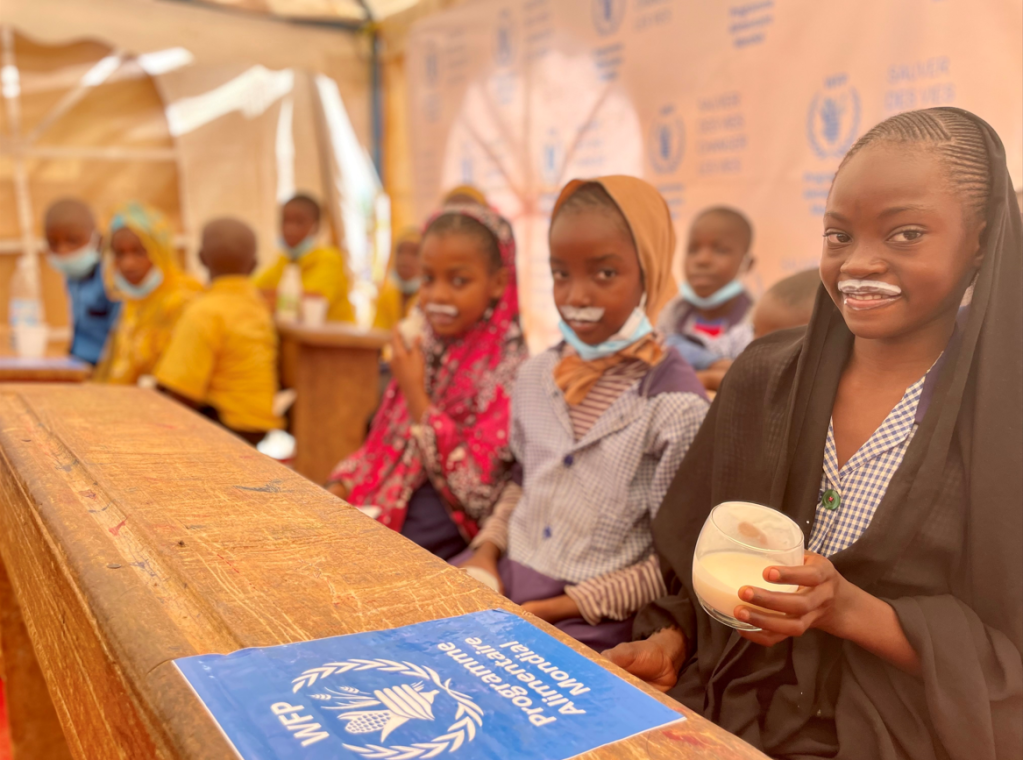
Story
14 December 2023
In Cameroon’s conflict-hit regions, EU funding helps displaced families make ends meet.
“We had to run at night in the bush to get to Mokolo,” says Christina, a 33-year-old mother six, who fled her home in the village of Tourou last December to find refuge in the city of Mokolo, both located in the Far North Region of Cameroon.
Having narrowly escaped an unexpected attack on their village by armed militias, Christina and her family were left with no means to provide for themselves. A family member in Mokolo gave them shelter.
“There isn’t enough room for everybody. But at least here we can sleep well. I feel safe and I no longer live in fear,” she says.
Over the past year, conflict and intercommunal clashes have displaced 420,000 people in Cameroon’s Far North region. The majority of them are women and children, who now live with host families and rely mostly on humanitarian assistance to survive.
Before they were forced to flee, Christina and her family used to farm crops, raise livestock, and manage a small business.
“We used to trade with the neighboring villages. But with the arrival of the armed groups, we had all given up,” she says.
With support from the European Union (EU) and other partners the World Food Programme (WFP) provides emergency food assistance through a special mechanism to address food and nutrition needs when a sudden new crisis comes on.
WFP used this mechanism to quickly responded to needs of crisis-affected people, providing food assistance to 240,000 internally displaced people in the Far North so far in 2023.
By year’s end, we hope to reach a total of 300,000 people in the region with emergency assistance and longer-term resilience-building support. Significant donor contributions, including from the EU, have allowed WFP to address the severe impact of the escalating global food crisis on displaced people like Christina — and supported our efforts to empower local communities to build resilience against hunger, and to strengthen local markets amidst economic downturns.
Christina and her family counted among those receiving rice, oil, salt, and beans to meet their basic food and nutrition needs for three months.
In addition to feeding displaced people, along with refugees from the Central African Republic, WFP also supports the Government’s school meals programme in many schools — including the one where Christina’s children are now enrolled.
“I want my children to be educated and become autonomous in the society. School meals keep them in school, so I have nothing to worry about,” she says.
Christina hopes that one day she will be able to return to her village and reconnect with her relatives.
“If the situation does not improve, I have no option but to find something to do and live on here,” she says. “I need anything that will make me self-reliant.
1 of 5
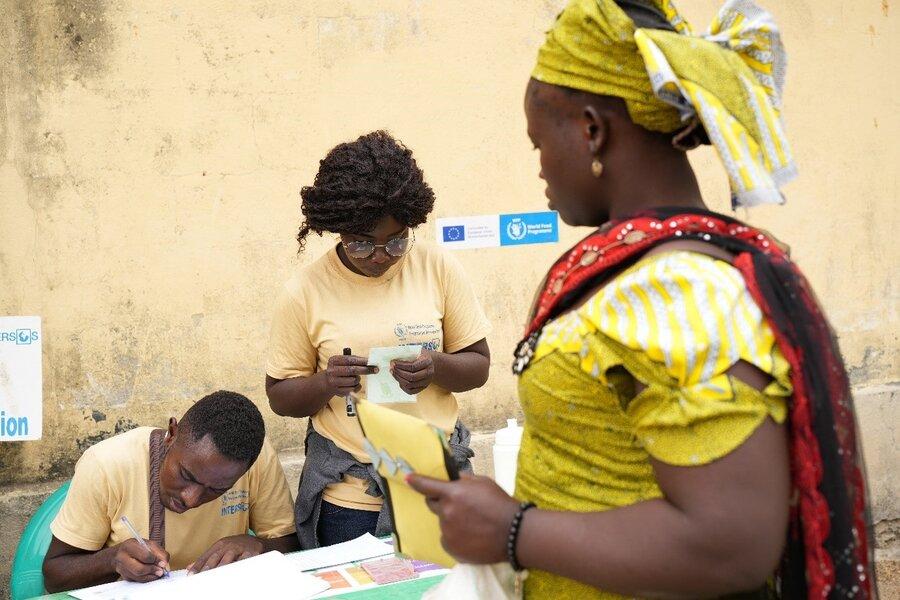
Story
14 December 2023
Engaging Men as Champions for child nutrition
It was an exciting scene. Other men looked on. The women smiled happily. Abdoulaye Djibrilla, most commonly known as Alhadji Djibrilla was carrying his child on the back. It is a rare sight in Cameroon’s Northern region to see an ‘Alhadji’ with a baby on his back. For this Alhadji however, gender stereotypes are not strong enough to prevent him from giving his child the care necessary for a healthy growth and for helping out his wife when he can.
In this community, Nandeke, located some eight kilometers from Meiganga in the Adamawa region of Cameroon, 7% of children suffer from moderate acute malnutrition. This is according to a community screening survey in September 2021 by the International Medical Corps, IMC. The exercise equally revealed that childcare is sometimes left exclusively to the woman who has to cater to every other member of the family.
As part of activities to commemorate the 16 days of activism against Gender Based Violence campaign, WFP engaged parents of beneficiaries of its Blanket Supplementary Feeding Programme (BSFP) to be more complimentary in the execution of house roles. It was an opportunity for mothers and fathers, men and women to participate in the nutrition welfare of their children.
While some men learnt how to make a pap of the nutritious super cereal, others engaged in cooking demonstrations. A total of 30 men and 55 women were present at the food distribution site where roles were reversed and men for the first time carried their babies while listening to educative talks on child nutrition.
They were briefed on the importance of a balance diet for children, how to prepare WFP’s specialized nutritious food and the positive effects of helping their partners at home towards bringing up well-nourished children. “I have always had a notion that my wife and I are a team, but today, I got to put it into action,” Djibrilla said. “To guarantee our children’s future, women and men must work together to properly nourish them” he added.
Mousmado Issa, 45, is another parent of a BSFP beneficiary actively participating in WFP’s 16 Days campaign activity. According to him, his child, Rougyatou Issa had survived what Doctors described as moderate Acute malnutrition due to the intervention of both WFP nutrition sensitive interventions and his support at home. “My wife does not go the market. In our community here, men are principally the purchasers and providers of food. As a man, it is therefore important to know what food to buy which has good nutritional value.” Issa continued.
When he heard of the nutrition sensitization programme targeting men, he was curious. “I wanted to know what types of food my children need,” he said. With the lessons he has received on Infant and young child feeding, he is excited to talk to other men in his community on how they can provide better nutrition for their families.
The District Medical Officer for Nandeke, Abbou Salle, lauded WFP’s initiative to include men in nutrition interventions. To him, men play a critical role in providing support that improves maternal and child health. “Undernutrition among children less than 5 years is still a public health concern in Cameroon and we believe that when men know better, they can influence and help increase breastfeeding rates, better maternal health outcomes for women and improve nutrition at home”. He called on WFP and its cooperating partner to apply such initiatives in all other intervention areas in the bid to improve child nutrition in Cameroon.
WFP Nutrition interventions in Cameroon are supported by the generous donations of Japan and Germany.
1 of 5
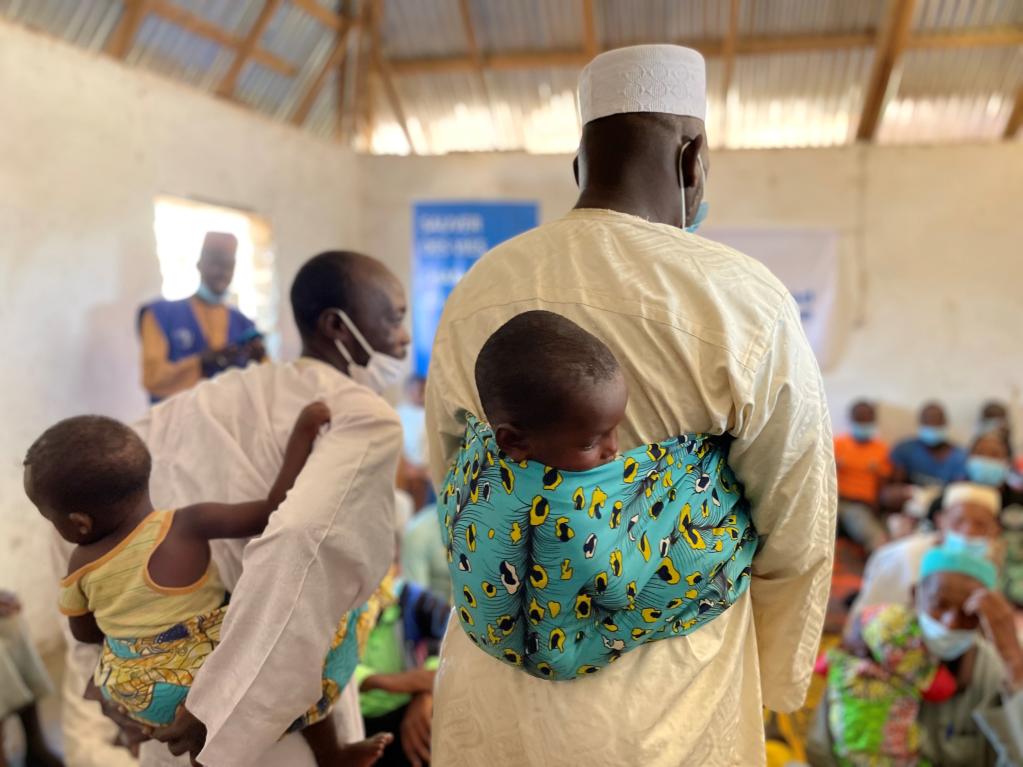
Story
11 December 2023
Fish smoking ovens help internally displaced fish processors in Cameroon start again
Sitting on the Logone River in the Far North region of Cameroon, right on the border of Chad, Logone-Birni has experienced more than its share of conflict and upheaval. The Boko Haram insurgency, which has been affecting the Far North region for nearly a decade, has meant that many have suffered violence and disruption.
But in December 2021, violent clashes erupted once again. This time the conflict arose between inland fishers, ethnic herders and farmers over limited water resources, a result of climate change and declining rainfall. Tens of thousands of people were forced to flee for their lives.
For years, fishers, herders and farmers have relied on the same river and other inland water bodies for their livelihoods. But conflict over these increasingly scarce water resources has forced fish processor, Fadmee, and many others to leave their homes.
Fadmee recalls, "I lost everything: my activities, my equipment for smoking fish which I had to sell. Everything was destroyed, even my house.’’
Despite her personal losses, when the conflict died down a couple of months later, Fadmee was relieved to return to her hometown of Honkol in early 2022. She joined many others who were looking to rebuild their lives and livelihoods.
Supporting the reintegration and economic recovery of Internally Displaced Persons (IDPs), the Food and Agriculture Organization of the United Nations (FAO) provided 18 Chorkor fish smoking ovens and capacity training in sustainable fish smoking methods to fishers in several villages of Logone-Birni.
Better quality, fewer losses
With FAO’s support, 60 women and 26 men were trained in the construction and operation of the Chorkor ovens and acquired improved smoking techniques. These trained women and men then organized sessions in their villages to share the best practices they had learned.
In this region, like many others in Africa, hot smoking has been the traditional method of processing fresh fish for sale. The introduction of ovens, such as the Chorkor, enhances the quality of finished products. With up to 24 drying racks, these ovens also have the capacity to boost production of smoked fish and reduce food losses, which ultimately means greater incomes for fishers like Fadmee.
From an environmental point of view, the Chorkor oven requires less wood for fuel consumption, reducing pressure on natural resources; it also emits little smoke, which minimizes the health risks associated with smoke inhalation, burns and heat exposure.
There are also social benefits. The FAO project has given IDPs and host communities a chance to work together. Linked to the installation of the ovens, 18 groups were established to collaborate on these activities, all the while promoting peaceful coexistence and strengthening social inclusion.
Fadmee says her work is now less labour intensive, and she produces better quality smoked fish.
"Before FAO introduced the Chorkor, I used traditional ovens, and it was difficult for me. This new smoking method is very good because it allows me to handle fish easily, and I spend much less time and effort," she says.
"Today, I manage to smoke fish up to four times a week, and my profits help me meet my family's needs." Fadmee continues, "I plan to increase my smoking production and build another Chorkor oven.”
As part of this project, FAO also distributed fishing inputs to 127 households, a total of nearly 900 people.
“We wish to support the development of responsible fishing and the reduction of post-harvest losses in the areas bordering the Logone River, hence the need to set up Chorkor ovens in the other villages of Logone-Birni and the surrounding municipalities,” says Athman Mravili, FAO Representative in Cameroon. “Internally Displaced Persons, returnees and host communities need our support to regain their footing.”
Conflict and climate-induced crises and the displacement they create are a major cause of malnutrition and food insecurity worldwide. Together with its partners, FAO is working to reduce these impacts by supporting the food security and livelihoods of those affected.
1 of 5
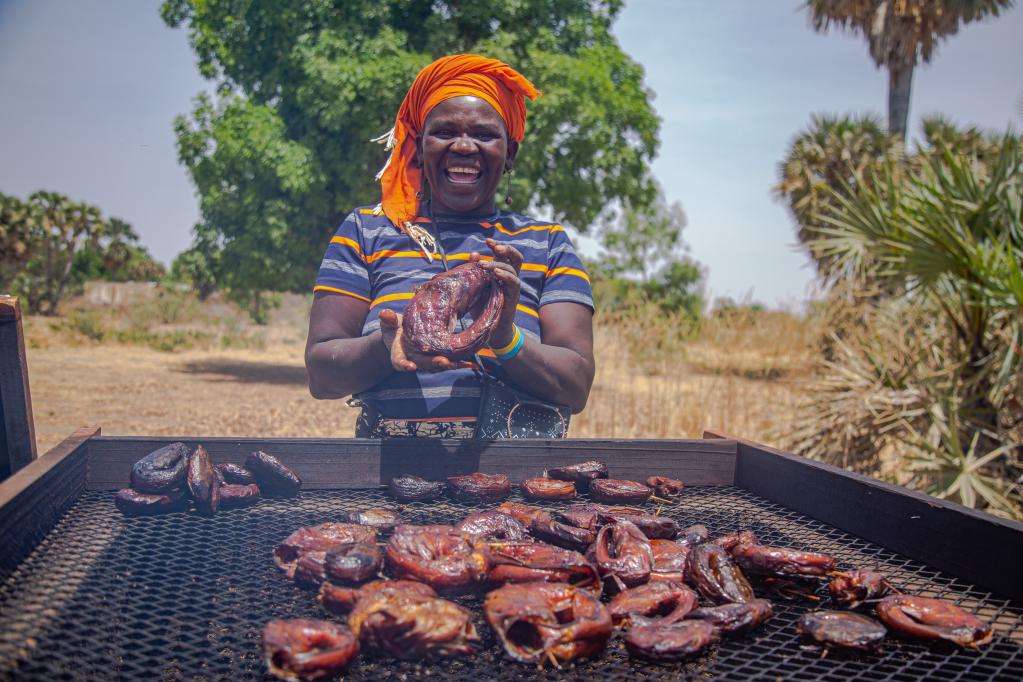
Press Release
26 September 2023
Readout of the Secretary-General’s meeting with H.E. Mr. Lejeune Mbella Mbella, Minister for External Relations of the Republic of Cameroon
They discussed the situation in Cameroon, including in the North-West, South-West and Far North regions. They also discussed the global consequences of the war in Ukraine as well as the need to reform the international financial architecture. The Secretary-General reiterated the United Nations commitment to support Cameroon.
New York, 25 September 2023
1 of 5
Press Release
04 April 2023
UNHCR and CIFOR-ICRAF officialize partnership for resilience and sustainable use of forest resources in communities affected by forced displacement in Cameroon
forestry and agroforestry research, have formalized an agreement to work together to strengthen the resilience of refugees and host community members, while safeguarding the sustainable management of forest resources in areas affected by forced displacement in Cameroon.
A Memorandum of Understanding between both organizations was signed on 23 March 2023 in Yaounde, with the UNHCR Representative for Cameroon, Olivier Guillaume Beer signing for the UN agency and Richard Eba'a and Ann Degrande for CIFOR and ICRAF respectively, to find ways of improving the living standards of refugees and internally displaced people, while reducing their environmental footprint.
"Refugees as well as host community members very often use wood for cooking and other activities, which has a significant impact on the environment, including the loss of trees. This in turn threatens peaceful coexistence, exacerbates the risks of gender-based violence, and worsens the effects of climate change," said UNHCR Representative Olivier Beer. "This Memorandum of Understanding is therefore a crucial step towards mitigating any adverse effects brought on by the prolonged stay of people in a situation of forced displacement, while supporting resilience and sustainable development in areas that host people served by UNHCR."
By combining their efforts to mobilize resources for the improvement of the livelihoods of refugees and host community members as well as the sustainable use of forests, UNHCR and CIFOR-ICRAF are aiming to reduce their vulnerability, in accordance with the Sustainable Development Goals on zero hunger, good health and wellbeing, affordable and clean energy, and climate change.
"Including energy supply and livelihood options early on in interventions in refugee situations makes it easier to avoid damage and long-term impacts," said Abdon Awono, a CIFOR-ICRAF scientist. "Moreover, community involvement and local governance support are essential to the success of such programs".
UNHCR and CIFOR-ICRAF will begin their collaboration in Garoua-Boulai Subdivision in the East Region, which hosts over 64,000 Central African refugees. Both organizations have agreed to conduct participative research to allow various groups within communities to be part of the process of finding and implementing solutions that improve the management of natural resources, so they can build futures for themselves and generations to come.
UNHCR serves over two million people in Cameroon, of whom 475,000 are refugees. 347,000 of them are Central African refugees living in settlements, towns and villages in the East, Adamawa, and North Regions. Another 126,000 are Nigerian refugees living in and out of Minawao camp in the Far North Region. There are also 24,000 refugees of several nationalities living in urban areas like Yaounde and Douala. According to UNOCHA, the UN Office for the Coordination of Humanitarian Affairs, there are more than one million internally displaced people in Cameroon, and over 557,000 returnees.
1 of 5
Press Release
01 July 2021
The humanitarian community appeals to all stakeholders to join forces to address the humanitarian needs in Cameroon
The funding of the Humanitarian Response Plan will allow humanitarian organizations to provide humanitarian assistance to three million people in need of urgent aid in 2021.
Yaoundé, 7 April 2021 – Today, the Minister of Territorial Administration (MINAT), Mr. Paul Atanga Nji, and the Humanitarian Coordinator in Cameroon, Mr. Matthias Z. Naab, launched the 2021 Cameroon Humanitarian Response Plan. This plan aims to provide lifesaving assistance, reduce the vulnerability of people affected by crises and support communities to become more resilient to withstand future shocks.
Cameroon continues to be affected by three protection crises and concurrent, complex humanitarian situations. In 2021 there are 4.4 million people in need of humanitarian assistance in the country because of insecurity, diminished coping capacities and lack of access to basic services.
The violence in the Far North, North-West and South-West regions, the insecurity in the Central African Republic and Nigeria – that have led to the arrival of thousands of refugees in the East, Adamawa, North and Far North regions – and the disruptive impact of the COVID-19 pandemic and prevention measures on public and private revenues have substantially increased the population’s vulnerabilities.
“With over 320,000 internally displaced persons in the Far North region, as a result of the conflict, Cameroon is the second most affected country by the Lake Chad crisis after Nigeria. Providing humanitarian assistance, sustainable support for vulnerable women, children and men and identifying durable solutions for those displaced, remains a top priority for the humanitarian community. It will help people retain their dignity and build their resilience”, said Mr. Naab.
In 2020, the humanitarian response in Cameroon continued to be underfunded with only 50 per cent of the Humanitarian Response Plan funded. If the chronic underfunding of the humanitarian response in Cameroon is not addressed, several million people will continue to be left without vital humanitarian assistance and protection, further deepening their vulnerabilities.
For more information, please contact:
Carla Martinez, Head of Office, OCHA Cameroon, martinez14@un.org
Bibiane Mouangue, Public information officer, OCHA Cameroon, bibiane.mouangue@un.org Press releases from OCHA are available at www.unocha.org/rowca and www.reliefweb.int
Cameroon Humanitarian Response Plan 2021 and Humanitarian Needs Overview 2021 are available at www.reliefweb.int
Bibiane Mouangue, Public information officer, OCHA Cameroon, bibiane.mouangue@un.org Press releases from OCHA are available at www.unocha.org/rowca and www.reliefweb.int
Cameroon Humanitarian Response Plan 2021 and Humanitarian Needs Overview 2021 are available at www.reliefweb.int
1 of 5
Press Release
01 July 2021
The Humanitarian Coordinator in Cameroon strongly condemns the attack on a United Nations convoy in the South-West region of Cameroon
The Humanitarian Coordinator in Cameroon, Mr. Matthias Z. Naab, strongly condemns the attack perpetrated by a non-state armed group on 26 March against a United Nations convoy in Ikata village, in the South-West region of Cameroon.
The UN convoy, composed of two vehicles with seven staff members, was conducting a monitoring mission to Munyenge village in the South-West region. Shortly after entering Ikata village, a group of armed men opened fire on the convoy with automatic weapons. The attack did not lead to any loss of life nor injuries among the mission participants, but the two vehicles were seriously damaged.
This attack is the first of this kind on a UN convoy since the beginning of the North-West and South-West crisis. However, several humanitarian workers have been threatened, abducted, injured, and killed to date in the two regions.
The general insecurity, especially attacks on civilians, aid workers, and essential social service providers, increases the population’s suffering and undermines humanitarian actors’ capacity to provide life-saving humanitarian assistance timely.
On behalf of the humanitarian community, the Humanitarian Coordinator calls on all parties to the crisis to abide by their obligations under intrenational human rights law and to refrain from any attacks against humanitarian organizations, educational and health care facilities and their personnel and assets. The United Nations calls for perpetrators of these attacks to be held accountable.
“Safe, timely, and unhindered access of humanitarian organizations to deliver life-saving aid to the affected population needs to be guaranteed,” said Mr. Naab.
Mr. Naab stressed the humanitarian community’s commitment to continue to support crisis- affected populations in Cameroon.
For more information, please contact:
Carla Martinez, Head of Office OCHA Cameroon, martinez14@un.org
Press releases from OCHA are available at www.unocha.org/rowca and www.reliefweb.int UN Office for the Coordination of Humanitarian Affairs To learn more about OCHA's activities, please visit www.unocha.org
Carla Martinez, Head of Office OCHA Cameroon, martinez14@un.org
Press releases from OCHA are available at www.unocha.org/rowca and www.reliefweb.int UN Office for the Coordination of Humanitarian Affairs To learn more about OCHA's activities, please visit www.unocha.org
1 of 5
Press Release
30 October 2020
Cameroonian policewoman recognized by the United Nations for her work in peacekeeping
Superintendent Rebecca Nnanga of Cameroon has been selected as one of two runners-up for the UN Woman Police Officer of the Year award for 2020 for her exemplary service while serving with the UN Multidimensional Integrated Stabilization Mission in the Central African Republic (MINUSCA).
“Through both her words and actions, United Nations Police Officer Rebecca Nnanga exemplifies the best of United Nations policing,” said Under-Secretary-General for Peace Operations Jean-Pierre Lacroix.
Of the nearly 1,400 policewomen deployed in UN peacekeeping operations, twenty-one were nominated for the prestigious award. The year’s winner Chief Inspector Doreen Malambo of Zambia, who serves with the UN Mission in South Sudan (UNMISS), will receive the top award during a virtual ceremony presided over by Mr. Lacroix on Tuesday, 3 November. Chief Superintendent Ugorji of Nigeria, serving with the UN Multidimensional Integrated Stabilization Mission in Mali (MINUSMA), was chosen as the other runner-up.
UN Police Advisor Luis Carrilho, the UN’s ‘top cop,’ congratulated Superintendent Nnanga for her selection as a runner-up and said: “We commend MINUSCA United Nations Police Officer Rebecca Nnanga’s tireless efforts to increase the recruitment of women police officers, achieving a quarter of new recruits in support of the internal security forces of the Central African Republic. Rebecca leads by example and is a tremendous role model for women and men in the police and in the communities we serve.”
Superintendent Nnanga deployed to MINUSCA in 2018 and currently serves as the Chief of the mission’s recruitment cell. In this role, she has supported the recruitment of 1,000 personnel for the Central African Republic’s internal security forces over the past several years and increased the number and percentage of women included. Her support for community-oriented policing has led to measurable security improvements in local communities. She has also worked to provide assistance to vulnerable people including survivors of sexual and gender-based violence (SGBV) as well as opportunities for local women to acquire new job skills. Superintendent Nnanga has been commended for her outstanding managerial abilities and for her work in ensuring good conduct and discipline among UN Police personnel.
Superintendent Nnanga joined the Cameroonian Police in 2001 and has served in assignments at the staff level and in training coordination. She has extensive experience as a UN Police Officer -- serving previously in UN peacekeeping operations in Haiti (2011-2014) as well as an earlier stint in the Central African Republic (2015-2016).
The UN Woman Police Officer of the Year award was established in 2011 to recognize the exceptional contributions of female police officers to UN peacekeeping and to promote the empowerment of women. The award carries even greater significance this year given the 20th anniversary of Security Council resolution 1325 on women, peace and security.
1 of 5
Latest Resources
1 / 11
Resources
11 December 2023
Resources
21 December 2021
1 / 11

